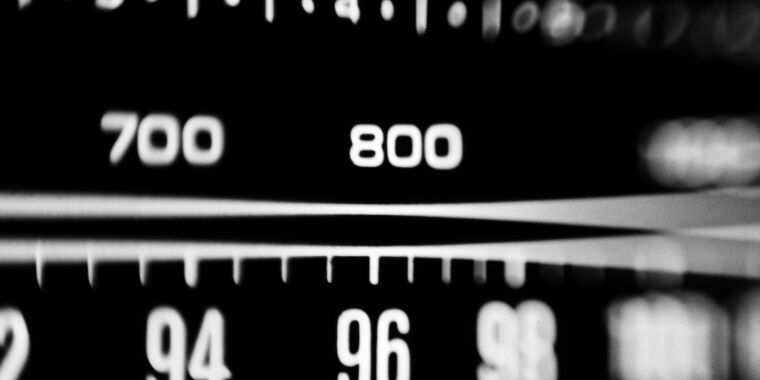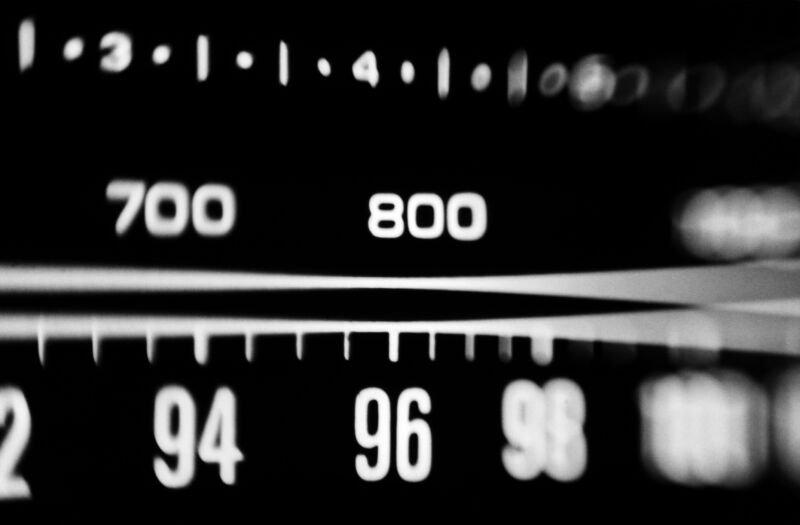AM radio law opposed by tech and auto industries is close to passing
looks like it’ll pass —
A recent test of the emergency alert system found only 1 percent got it via AM.

Enlarge / Congress provides government support for other industries, so why not AM radio?
Getty Images
A controversial bill that would require all new cars to be fitted with AM radios looks set to become a law in the near future. Yesterday, Senator Edward Markey (D-Mass) revealed that the “AM Radio for Every Vehicle Act” now has the support of 60 US Senators, as well as 246 co-sponsors in the House of Representatives, making its passage an almost sure thing. Should that happen, the National Highway Traffic Safety Administration would be required to ensure that all new cars sold in the US had AM radios at no extra cost.
“Democrats and Republicans are tuning in to the millions of listeners, thousands of broadcasters, and countless emergency management officials who depend on AM radio in their vehicles. AM radio is a lifeline for people in every corner of the United States to get news, sports, and local updates in times of emergencies. Our commonsense bill makes sure this fundamental, essential tool doesn’t get lost on the dial. With a filibuster-proof supermajority in the Senate, Congress should quickly take it up and pass it,” said Sen. Markey and his co-sponsor Sen. Ted Cruz (R-Texas).
About 82 million people still listen to AM radio, according to the National Association of Broadcasters, which as you can imagine was rather pleased with the congressional support for its industry.
“Broadcasters are grateful for the overwhelming bipartisan support for the AM Radio for Every Vehicle Act in both chambers of Congress,” said NAB president and CEO Curtis LeGeyt. “This majority endorsement reaffirms lawmakers’ recognition of the essential service AM radio provides to the American people, particularly in emergency situations. NAB thanks the 307 members of Congress who are reinforcing the importance of maintaining universal access to this crucial public communications medium.”
Why are they dropping AM anyway?
The reason there’s even a bill in Congress to mandate AM radios in all new vehicles is that some automakers have begun to drop the option, particularly in electric vehicles. A big reason for that is electromagnetic interference from electric motors—rather than risk customer complaints from poor-quality audio, some automakers decided to remove it.
But it’s not exclusively an EV issue; last year we learned the revised Ford Mustang coupe would also arrive sans AM radio, which Ford told us was because radio stations were modernizing “by offering Internet streaming through mobile apps, FM, digital and satellite radio options,” and that it would continue to offer those other audio options in its vehicles.
In response to congressional questioning, eight automakers told a Senate committee that they were quitting AM: BMW, Ford, Mazda, Polestar, Rivian, Tesla, Volkswagen, and Volvo. This “undermined the Federal Emergency Management Agency’s system for delivering critical public safety information to the public,” said Sen. Markey’s office last year, and AM radio’s role as a platform for delivering emergency alerts to the public is given by supporters of the legislation as perhaps the key reason for its necessity.
Tech and auto industries aren’t happy
But critics of the bill—including the Consumer Technology Association—don’t buy that argument. In October 2023, FEMA and the Federal Communications Commission conducted a nationwide test of the emergency alert system. According to CTA, which surveyed 800 US adults, of the 95 percent of US adults that heard the test, only 6 percent did so via radio, and just 1 percent on AM radio specifically. Instead, 92 percent received the alert pushed to their smartphone.
“Requiring the installation of analog AM radios in automobiles is an unnecessary action that would impact EV range, efficiency and affordability at a critical moment of accelerating adoption,” said Albert Gore, executive director of ZETA, a clean vehicle advocacy group that opposes the AM radio requirement. “Mandating AM radio would do little to expand drivers’ ability to receive emergency alerts. At a time when we are more connected than ever, we encourage Congress to allow manufacturers to innovate and produce designs that meet consumer preference, rather than pushing a specific communications technology,” Gore said in a statement.
AM radio law opposed by tech and auto industries is close to passing Read More »


